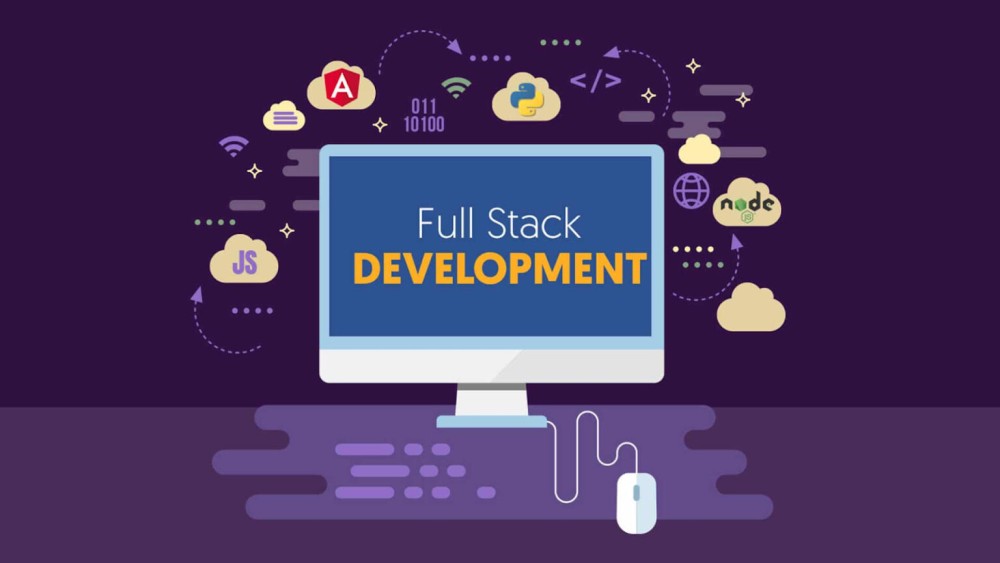Skills that should be possessed by any competent full-stack developer

For a long time, full-stack developers have been held up as the ultimate go-to for any and all coding problems. Joining this select group of people may not be as difficult as you think.
Full-stack developers are highly sought after in the competitive software development industry of today. Developers that are "full stack" experts in their field understand every part of the process, from designing the user interface to writing the code that powers the program.
Just exactly is meant by the term "full-stack developer?"
There are two parts to creating a website: frontend and backend coding. Every web-based or mobile app has these two features.
Graphics are included in the application's user interface. It's a situation where the user does something in response to what's on the screen. The backend of an app is responsible for processing the application's business logic. The backend is responsible for the way the website functions, the way data goes through it, and the way it is saved.
What you get when you combine the two is full-stack web development. A full-stack developer is one who is well-versed in both front- and back-end systems. Included too are the necessary databases, frameworks, environments, and libraries. The company's technological stack incorporates these elements.
Full stack developers typically have expertise in the following areas of software and hardware:
Syntactic varieties of computer programs
Skilled full-stack developers know how to code in a wide variety of languages, including Java, C#, Ruby, and PHP. Knowing how to create, organize, test, and implement computer codes, as well as being an expert in the syntax of a language, are all necessary skills.
In other words, external resources such as development tools and libraries
Programming languages are typically used in tandem with a robust development framework like Node.JS, Express.JS, Hibernate, Python Django, Java Spring, MyBatis, and PHP Thinkphp. Because of this, full-stack engineers need to be familiar with several development frameworks and external libraries.
Development of the interface (front-end development)
Understanding front-end technology is crucial for full stack developers. Front-end technologies such as HTML5, CSS3, and JavaScript are essential, but a full-stack developer also needs to be proficient with frameworks such as JQuery, LESS, SASS, AngularJS, or REACT.
The use of cache and database systems
All programs need some sort of database in order to store information. Databases are an integral part of any application, and a full stack development service should be comfortable interacting with them. Well-known databases like MongoDB, MySQL, Redis, and Oracle are used by developers as the backbone for dynamic programs.
Skills in the fundamentals of design
When it comes to the most fundamental design capabilities, full-stack developers need to understand the core concepts and skills of prototype design, UX design, and UI design.
Advantages that may be obtained from employing a full-stack development company:
Web development skills, both front- and back-end Skilled full-stack developers can switch between front-end and back-end work with ease, depending on the requirements of the project. You can avoid hiring many companies to solve complex issues and save both time and money.
Simple project management: The complete website’s design and execution may be readily taken up by a respected full-stack development business. The full stack development team at the development organization can function more efficiently due to the solutions' internal nature.
Cost-effectiveness is shown by the fact that a full-stack web development company can handle both the front-end and back-end of a project, whereas hiring two separate specialists would drive up expenses. Those working for a company that provides full stack development may have personnel that are proficient in all of the necessary stack technologies.
It is possible for a full stack development team to divide up the tasks of development and design as the project progresses. Only by working together will they be able to finish the project on schedule.
Regular updates with little effort required: studies show that full-stack development companies are the most open to trying new tools and technologies. Knowing the methods inside and out makes improvements less of a challenge.
Thinking about the skillsets required to succeed in a full-stack role will help you decide if this type of profession is suited for you. Being a full-stack developer requires more than just innate talent; it also requires a passion for the field and a dedication to constantly improving one's abilities.
The vast majority of programmers never stop learning and honing their craft. You don't have to be perfect, just curious and receptive.





